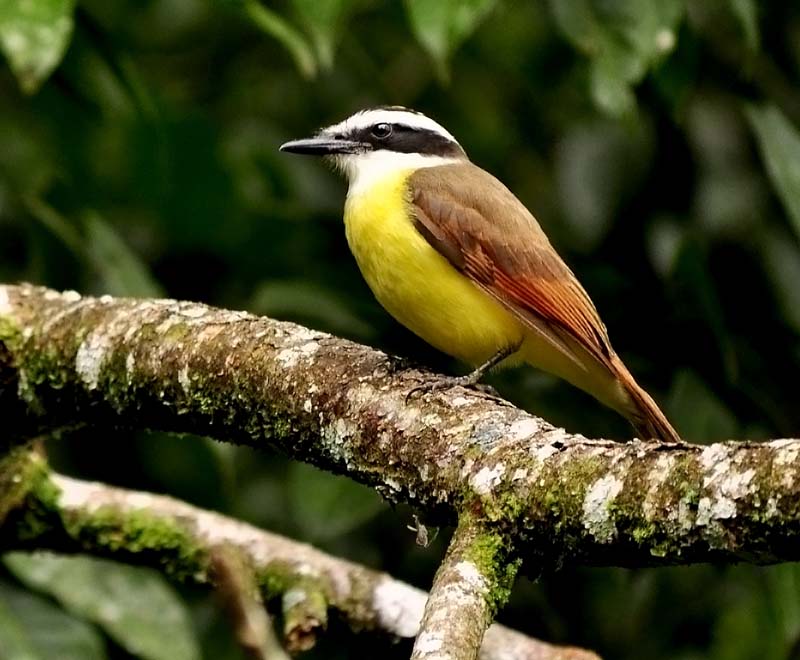 |
| Great Kiskadee (source) |
I recently made a trip to Suriname with my wife Henriette. A wonderful experience and a must for anyone who loves untouched natural beauty and new cultures. For me there was a second reason: the desire to do on-site research into a country that plays a part in the book that I will publish next year.
 |
| Elmina Castle, Ghana |
The title of the book will be ANANSI, I've been working on it for over a year and the Dutch manuscript is now with my editor (I will translate it into English later). It is an historical novel, set at the end of the 17th century in Elmina, the headquarters of the Dutch West India Company on the former Gold Coast (now Ghana) and in Suriname, on the South American north coast next to the Guyanas. The main protagonists are a young African woman, a house slave of a Spanish slave trader, and a Dutch sailor, who are irresistibly attracted to each other. The forbidden relationship comes to light and the girl is sold and put on a slave ship to Suriname. He manages to get aboard another ship to search for her on the opposite side of the Atlantic.
 |
| the Suriname river at Gunsi, Sipaliwini district |
A central theme in the book is the folk stories of Anansi, which in West Africa are handed down from mother to daughter and travelled across the Atlantic with the slave trade. Anansi is a smart spider, who plays all kinds of tricks. The girl from Africa tells the stories she learned from her grandmother and takes them to Suriname.
To my surprise and delight, during my trip I was invited for an interview about my writing by the national Surinamese newspaper De Ware Tijd, an account being written by local journalist Audry Wajwakana (in Dutch).
 |
| sunrise over the Suriname river, Gunsi |
I saw the horror of the slave dungeons of Elmina 10 years ago, but I had never been to Suriname. I'm not going to mince words about slavery, because the cruelties which Dutch human traffickers, slave skippers and planters perpetrated for 200 years are undeniable. This despicable and inhuman machinery still leaves its mark and is only being recognized in the Netherlands with difficulty.
 |
| rain clouds illuminated by the setting sun at Gunsi |
We need not be eternally ashamed of what was perpetrated by previous generations as that wasn’t of our own doing, but it must be admitted honestly and without holding back. It must be written down in history and generous compensation should be offered to the descendants of the victims. But the State of the Netherlands has been unable to utter the word 'apology' for years.
Even though the truth is duly known, all kinds of delaying tactics seem to persist under the pretext of 'due diligence', the real reason being unwillingness to face the facts. The charade was continued during our PM Mark Rutte's recent visit to Suriname. He stuck his his head into the sand once more and said something vague about action being taken next year. Next year? Take responsibility Mark, admit it honestly, reach out to Suriname so we can put the past behind us and look to the future. It can be done today, or would that offend your voters?
 |
| Restored plantation house at Mariënbosch, Commewijne |
Apart from the burden of the past, our journey was a unique experience. We saw so many beautiful things and met so many nice people. Who in the Netherlands knows about the Great Kiskadee, which is called ‘Grietjebie’ in Suriname, a yellow-breasted bird the size of a starling that loudly calls its own name? And who knows the Kankantrie, the spirit tree that is revered in the jungle because it houses the Busigado, a forest spirit? Who knows that when entering a Maroon village, men must walk on the left and women on the right? And who has raced through the rapids of a fast-flowing jungle river in a pirogue fitted with a large outboard engine?
 |
| dead trees in the coastal swamp at Bigi Pan, Nickerie district |
 |
| islet in the Maratakka river, Nickerie district |
I invite you to travel to Suriname for a few weeks, get to know the beautiful country and its friendly inhabitants and then return home with a warm feeling.
 |
| sunset over Bigi Pan |